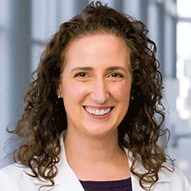Dallas
214-456-2768
Fax: 214-456-6898
Plano
469-303-0055
Fax: 469-303-0655
Request an Appointment with codes: Neurology
A wide variety of issues can affect the function of your child’s neurological system. During a pediatric neurological examination, your doctor will test the function of your child’s brain, spine, nerves and muscles. These tests help your doctor figure out whether your child has a neurological problem, and if so, what it is and where it is.
The team at Children’s Health is known throughout the country for its ability to help children like yours. We are the only team in our region that offers your child access to experts in every aspect of pediatric neurology. Your child will receive the most advanced care, therapies and procedures right here in one place.
214-456-2768
Fax: 214-456-6898
469-303-0055
Fax: 469-303-0655
Request an Appointment with codes: Neurology
A pediatric neurological exam is very detailed and hands-on. It will include aspects of a general visit where your doctor will listen to your child’s heart and lungs and look at their skin. Your child’s doctor will also ask you questions about your child’s health history and what you are noticing about their symptoms and behavior. Then they will evaluate your child’s:
The pediatric neurological exam isn’t usually scary or painful. In fact, many children enjoy it because we ask them to do things like run down the hall, jump up and down, and make strange faces.
Many different issues can cause symptoms in the brain, spine, nerves and muscles. These can range from headaches to strokes to rare genetic disorders. Your doctor uses different portions of the pediatric neurological exam to figure out what is happening for your child, and what the next steps might be. Sometimes we can figure out what treatments or medicines might help your child based on this pediatric neuro exam. Other times we may order additional tests.
You can expect the pediatric neuro exam to be a very detailed, hands-on exam.
We will want to see what your child’s symptoms or episodes look like, and what may cause or trigger them.
We know that your child’s symptoms may not be present all the time. If your child’s symptoms tend to come and go, please try to bring a video of your child experiencing their symptoms to the appointment. Cell phone videos work just fine for this.
Please also be thinking about things that cause, or trigger, your child’s symptoms so you can tell us at the appointment.
Pediatric neuro exams can have a playful energy. Your child will be asked to do things they don’t often do at a doctor’s appointment – like hop around, balance on one leg, or move their eyebrows in funny ways. Some children are surprised that the doctor will want to touch their bare feet to test their sensation. In general, it’s not a painful or scary exam.
Depending on what was seen during the exam, your doctor may order follow-up tests to get more information. This could include:
Let your child know about the different types of tests your doctor will perform.
It’s very important for your child to come as they are. We want to see how they are functioning on a typical day. They should wear the same type of clothes and shoes they typically wear, and they should take any medication they normally take.




























